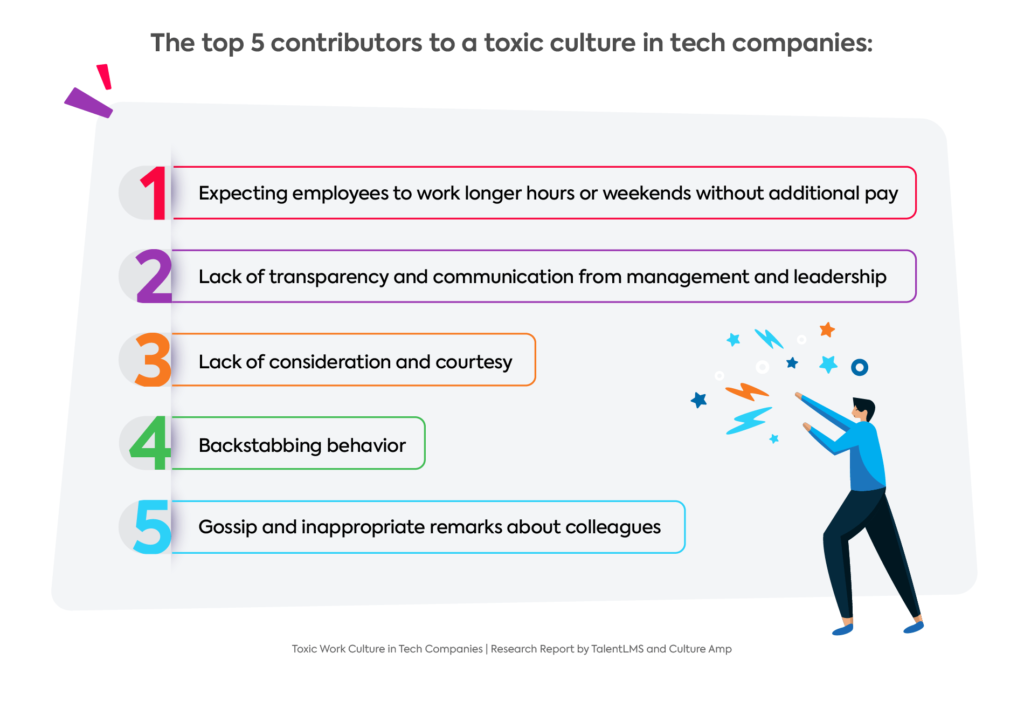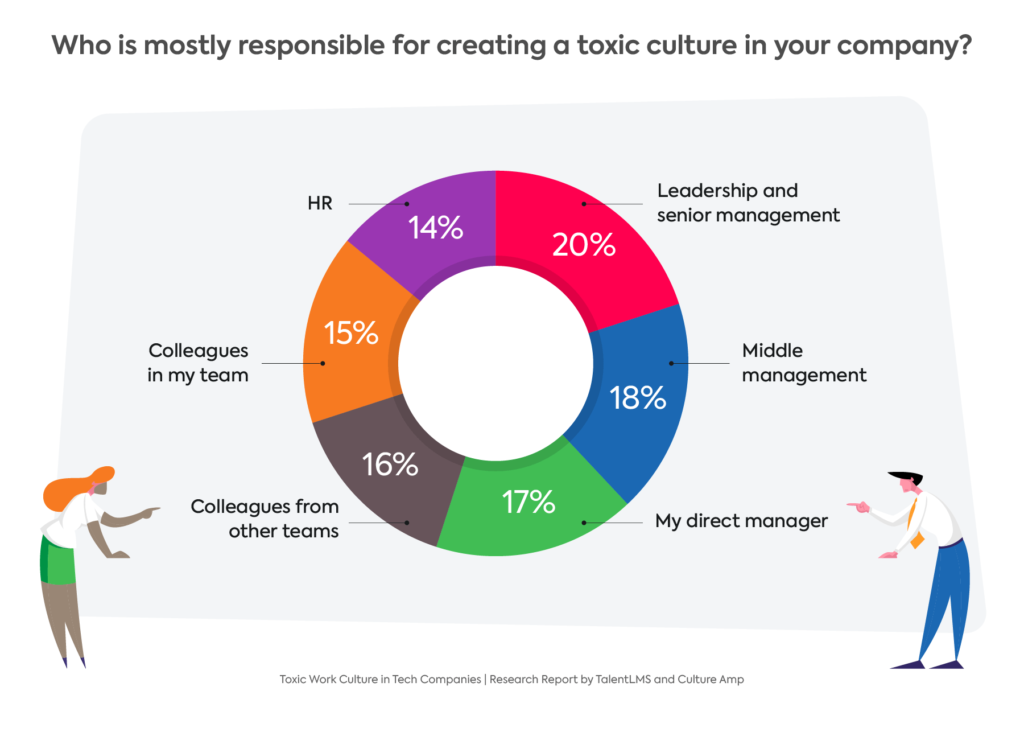A new survey has revealed that almost half (45%) of employees in the tech industry who are experiencing a toxic work environment plan to quit their job because of it.
Additionally, toxic culture has pushed 45% of employees towards quiet quitting, confirmed the report carried out by learning management system TalentLMS, in collaboration with employee experience platform Culture Amp. The study examines what contributes to a toxic work environment, the role of leadership, and what employees think can help eliminate toxicity in their workplace.
The research revealed that a toxic work environment negatively affects employee performance (48%), and their physical health (48%), while 46% respondents admitted to suffering from burnout. Expecting employees to work longer hours or weekends without additional pay is the top contributor to a toxic company culture, according to the report. Lack of transparency and communication from management and leadership comes in second place, followed by a lack of consideration and courtesy.

ROLE OF LEADERSHIP
The survey highlighted the importance of leadership and senior management in creating and maintaining a healthy workplace. According to the surveyed employees, leadership and senior management (20%) are mostly responsible for the toxic culture in tech companies, followed by middle management (18%) and direct managers (17%). At the same time, it is surprising that nearly half (45%) of employees in toxic tech companies say leaders are unaware of the toxicity, and live in a bubble where company culture is perceived as healthy.

HEALTHY WORK CULTURES
“A healthy work culture is all about leadership. Interestingly, most startups that manage to grow actually do so thanks to their culture and attractive work environment,” said Dimitris Tsingos, President of Epignosis and Co-founder of TalentLMS. “Unfortunately, during the scaling phase, founders and investors make a common yet disastrous choice that kills this culture: they build management teams, not aiming to increase their strengths, but focusing on their weaknesses. This creates a disconnect between the company vision and the culture experienced daily by employees. When selecting your leaders, look for ones that enthusiastically embrace your culture.”
When faced with toxic behaviours or situations, almost half (49%) of surveyed employees say they don’t do or say anything. Around 29% don’t say anything because they don’t believe it will make a difference, and 20% because they’re too nervous about the consequences.
NEGATIVE IMPACT OF TOXIC WORKPLACE
Commenting on the negative impacts of a toxic culture on employees and organisations, Dr Joel Davies, Senior People Scientist at Culture Amp, said: “In their most extreme form, these toxic behaviours can put the mental health of employees seriously at risk. But even moderate levels of these behaviours can severely impact organizational performance by undermining employee motivation, diminishing the strength of the employer brand, and increasing employee turnover.”
To address toxicity, almost half of employees (48%) agree training can help in fostering a more positive and healthy work environment. Forty-three percent think managerial and leadership training for leaders and managers would be helpful. Also, 46% of respondents find the practice of employees offering feedback to their managers, leaders, and peers helpful.
Click here to access the full report.








































